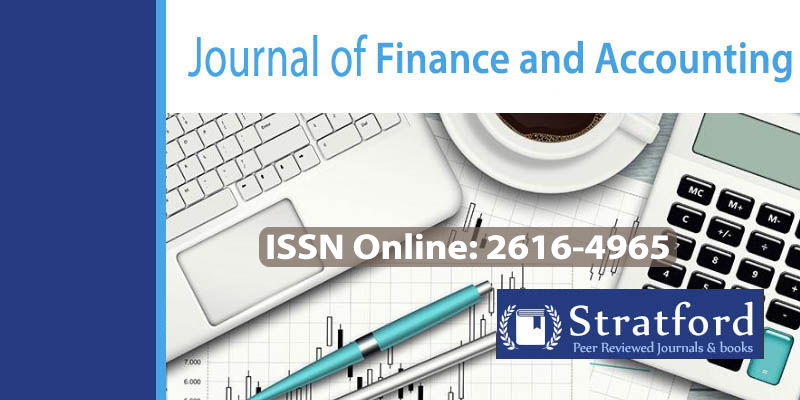Audit Quality Control and Standards: A Case Study of Auditing Firms in Kigali, Rwanda
DOI:
https://doi.org/10.53819/81018102t2267Abstract
Most accounting firms do not acknowledge they are susceptible to non-compliance on audits in lieu to accounting standards globally. The effectiveness of audit quality control mechanisms is essential to maintain the integrity and reliability of financial reporting. However, noncompliance with these controls can jeopardize the quality of audits and erode trust in financial markets. According to studies, accounting standards infringement may happen both inside and internationally and may include clients, staff, or other important stakeholders in a firm. According to the findings of previous studies, non-compliance to accounting standards can happen even when there are no due regulations, tools, and models in place. This proposal sought to explores the critical issue of audit quality control noncompliance and its impact on auditing standards within the context of auditing firms in Kigali, Rwanda. More specifically, this research sought to investigate the influences of influence of competence and standards on auditing firms in Kigali, Rwanda, establish the influence of firm’s accountability and standards on auditing firms in Kigali, Rwanda and finally determine the influence of due professional care and standards on auditing firms in Kigali, Rwanda. The study was anchored on Signaling Theory and agency theory. The study adopted descriptive research design method. The population of the study encompassed all the 23 auditing firms in Kigali, Rwanda thus a census approach was applied. The researcher used secondary data from the auditing firms. Descriptive statistics, such as frequencies and percentages, were used to summarize and present the survey responses. The research result revealed that all the predictor variables had a moderate relationship on standards. Accountability tools ranking last with (r = 0.519). Pearson Correlation coefficient of competence and standards was computed and established as {0.553, p-value < 0.001} policies contribute moderately to fraud control The computed Pearson correlation coefficient for due professional care on standards control was (r=0.547, p-value < 0.001). By investigating the prevalence, causes, and consequences of noncompliance, it sought to provide valuable insights for auditors, regulators, and policymakers to enhance audit quality and uphold auditing standards in Rwanda's financial reporting landscape.
References
Arens, A. A., Elder, R. J., Beasley, M. S., & Hogan, C. E. (2016). Auditing and Assurance Services: An Integrated Approach. Pearson.
DeFond, M. L., & Zhang, J. (2014). A review of archival auditing research. Journal of Accounting and Economics, 58(2-3), 275-326.
Chukwunedu, Okaro & Okafor, Gloria & Ofoegbu, Grace. (2015). The Effect of Joint Audit on Audit quality- The Perceptions of Accountants, Auditors and Accounting Academics at AAFA 2015 conference in Mauritius. 10.13140/RG.2.1.2695.6009.
De Almeida, B. J. M. (2014). The agency theory: the main foundational base to explain the auditing in Portuguese investor-oriented firms. Journal of Economics, Management, and Trade, 275-304.
Lamm, F., & Gordon, L. (2019). The practice of internal auditing: Professional ethics in the context of auditing standards. Research in Accounting Regulation, 31(3), 222-229.
Mulunda, L. (2016). The Three Architects of Kenya's Banking Crisis. Nairobi Business Monthly. Retrieved 25th August 2021, from https://www.nairobibusinessmonthly.com/the-threearchitects-of-kenyas-banking-crisis. 86
Musya, F. (2013). Strategic Planning and Performance of Audit Firms in Nairobi, Kenya (Doctoral dissertation, University of Nairobi,).
Ring, D., & Leopold, S. S. (2015). Measuring satisfaction: can it be done? Clinical Orthopaedics and Related Research®, 473(10), 3071-3073.
Rousson, Valentin & Gasser, Theo & Seifert, Burkhardt. (2012). Assessing inter-rater and testretest reliability of continuous measurements. Statistics in medicine. 21. 3431-46.
Safonova, M. F., Makarenko, S. A., & Bershitskiy, Y. I. (2018). Developing documentation in accordance with international audit standards in Russian practice. Espacios, 39(34), 23.
Samsonova‐Taddei, A. (2013). Social relations and the differential local impact of global standards: The case of international standards on auditing. Abacus, 49(4), 506-538.
Satria, M. R. (2019). effect of auditor's experience and ethics on audit quality in public accountant offices in Bandung city. JESS: Journal of Economic Empowerment Strategy, 2(2), 1-7.
Saunders, M., Lewis, P., & Thornhill, A. (2019). Research Methods for Business Students, 8th edition: Pearson, London.
Sawalqa, F.A. (2014). External Audit Services Quality and Client Satisfaction: Evidence from Jordan. Research Journal of Finance and Accounting, 5, 223-236.
Segal, S. (2016). Accounting frauds–review of advanced technologies to detect and prevent frauds. Economics and Business Review, 2(4), 45-64.
Su, N. (2017). Positivist qualitative methods. The Sage handbook of qualitative business and management research methods: History and traditions, 17-31.
Sulaiman, N. A. (2018). Attributes and Drivers of Audit Quality: The Perceptions of Quality Inspectors in the UK. Asian Journal of Accounting & Governance, 10, 23-35.
Tepalagul, N., & Lin, L. (2015). Auditor independence and audit quality: A literature review. Journal of Accounting, Auditing & Finance, 30(1), 101-121.
Tilbury, C., Osmond, J., & Crawford, M. (2010). Measuring client satisfaction with child welfare services. Journal of Public Child Welfare, 4(1), 77-90. 89
Toro-Arias, J., Ruiz-Palomino, P., & del Pilar Rodríguez-Córdoba, M. (2021). Measuring Ethical Organizational Culture: Validation of the Spanish Version of the Shortened Corporate Ethical Virtues Model. Journal of Business Ethics, 1-24.
Van Harling, M. N., Supriyati, S., & Djuwari, D. (2012). The Effect of Audit Quality Attributes On Client Satisfaction. The Indonesian Accounting Review, 3(1), 67-76.
Volosin, E. (2008). The theories of audit expectations and the expectations gap. GRIN Verlag.
Watkins, A. L., Hillison, W., & Morecroft, S. E. (2014). Audit quality: A synthesis of theory and empirical evidence. Journal of accounting literature, 23, 153.
Wekesa, J. L. (2014). The effect of firm size and financial stability on the audit independence of audit firms in Nairobi (Doctoral dissertation, University of Nairobi).
Whited, R. L., & Swanquist, Q. T. (2015). Do clients avoid "contaminated" offices? The economic consequences of low-quality audits. The Accounting Review, 90(6), 2537-2570.
World Bank. (2023). The World Bank in Kenya. Retrieved 25th August 2023, from https://www.worldbank.org/en/country/kenya/overview.
Woźniak, M. (2021). Sustainable Approach in IT Project Management—Methodology Choice vs. Client Satisfaction. Sustainability, 13(3), 1466.
Ye, P., Carson, E., & Simnett, R. (2011). Threats to auditor independence: The impact of relationship and economic bonds. Auditing: A Journal of Practice & Theory, 30(1), 121- 148.



